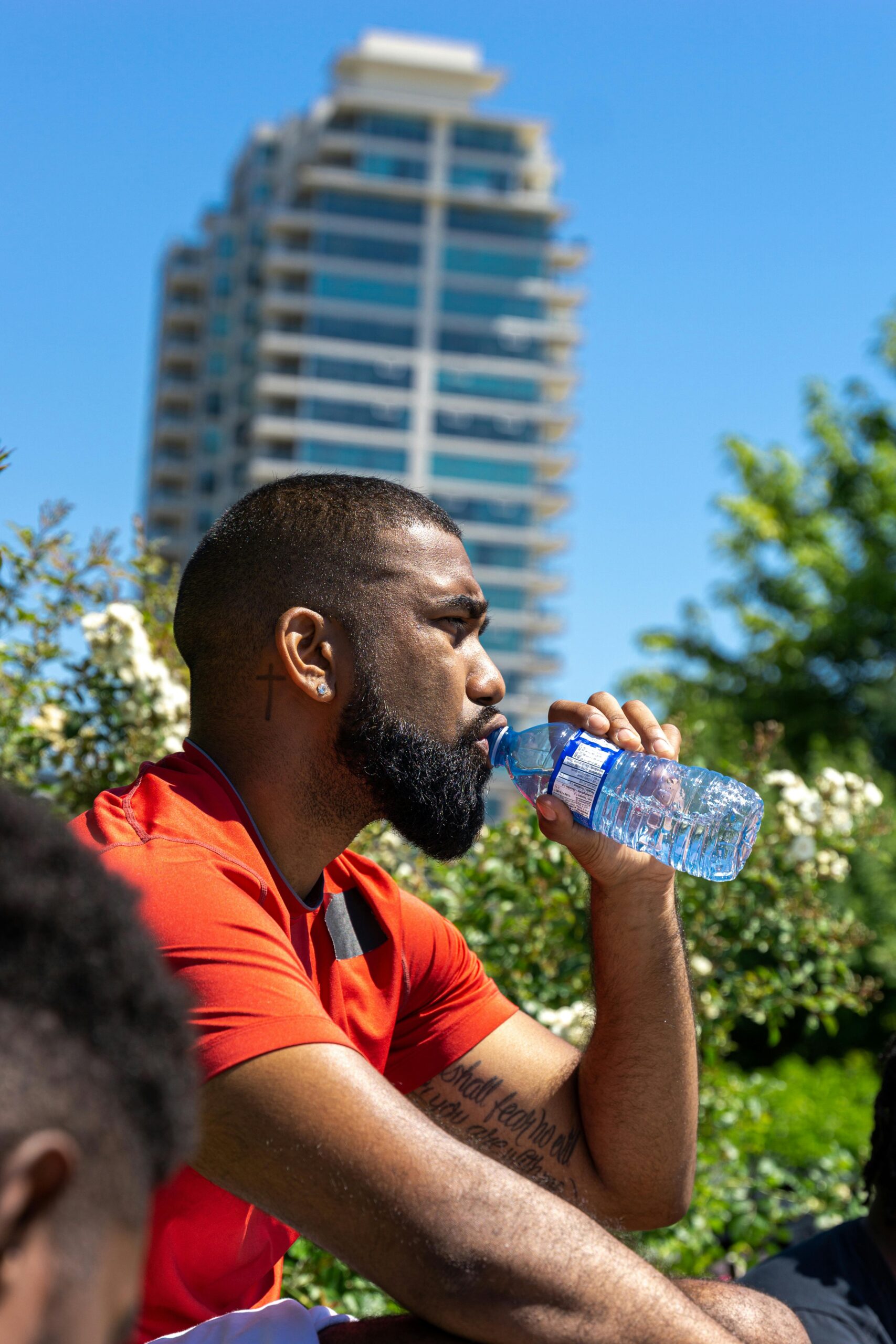Effective Ways to Optimize Alcohol Consumption for Muscle Building in 2025
In today’s fitness landscape, the relationship between alcohol consumption and muscle building has raised numerous questions among athletes and fitness enthusiasts. Balancing social drinking with serious training goals can be tricky, especially for those aiming for optimal muscle growth and recovery. Understanding how alcohol affects your body—specifically in terms of muscle repair, nutrient absorption, and overall recovery—is crucial. In this article, we will explore effective strategies to integrate responsible alcohol consumption into your fitness lifestyle without compromising your muscle-building efforts.
The importance of fitness and nutrition cannot be overstated when pursuing your bodybuilding goals. With the right approach, you can enjoy social occasions while still supporting your muscle growth and fitness objectives. This article outlines actionable steps to consider, along with expert insights into the delicate dance of exercising and enjoying alcohol. We will cover the impact of alcohol on muscle recovery, effective dietary strategies, and how to fine-tune your fitness plan for optimal results.
Key takeaways include understanding the optimal alcohol types and quantities, learning how to maximize nutrient absorption, and maintaining a robust training plan. Let’s delve deeper into the essential aspects of alcohol consumption and muscle building.
Understanding the Impact of Alcohol on Muscle Growth
To effectively manage alcohol consumption in relation to muscle building, it’s essential to first understand how alcohol affects the body. Alcohol can significantly impact nutrient absorption, hormonal balance, and muscle recovery, making it an important factor in any athlete’s diet.
Effects on Muscle Recovery
Alcohol consumption can delay muscle recovery and synthesis. When consumed in high amounts, it interferes with the body’s ability to repair muscle fibers post-exercise. Studies show that alcohol can inhibit protein synthesis—one of the key processes for muscle growth—and therefore can lead to reduced muscle strength and size. Consequently, moderation in alcohol intake post-workout is crucial for maintaining muscle gains.
Nutrient Absorption and Utilization
Alcohol can disrupt the digestive process, affecting how nutrients are absorbed and utilized by the body. Essential nutrients necessary for muscle repair, like proteins and micronutrients, may not be adequately absorbed if alcohol is consumed frequently or in excess. Therefore, prioritizing a balanced diet rich in proteins, vitamins, and minerals is essential to offset the potentially negative influences of alcohol.
Hormonal Imbalance Concerns
Additionally, alcohol intake can influence hormones responsible for muscle growth, such as testosterone. Chronic alcohol consumption can lead to lower testosterone levels, impacting muscle hypertrophy. For individuals focused on building muscle mass, moderation is key to avoiding disruptions in this hormonal balance.
With a better understanding of how alcohol impacts these essential aspects of muscle growth, we can now explore strategies to optimize alcohol consumption while pursuing your fitness goals.
Choosing the Right Type of Alcohol
Not all types of alcohol have the same effect on your body. Some are more conducive to muscle recovery and building than others. Choosing wisely can help you maintain your fitness levels while enjoying your social life.
Low-Calorie Options
When it comes to alcohol, the caloric content is a significant factor. Opting for low-calorie options can help minimize any negative impact on muscle recovery and fat storage. Light beers and dry wines, for instance, contain fewer calories than sugary cocktails or craft beers, which are often higher in sugar and calories. Therefore, choosing lighter options allows you to enjoy a drink without overloading on excess calories.
Hydration Considerations
Keeping well-hydrated is critical when consuming alcohol, especially for muscle recovery. Alcohol is a diuretic, which can lead to dehydration and hamper performance. Including water with your alcoholic beverages can help maintain hydration levels and mitigate some of the adverse effects alcohol may have on fitness performance.
Alcohol Timing and Consumption Rate
Timing your alcohol consumption around workouts is also important. Consuming alcohol in moderation after training may prevent it from impacting your immediate recovery. Moreover, spacing out drinks rather than binge drinking allows your body to process alcohol effectively, minimizing its potential negative effects on muscle growth and health.

Enhancing Your Diet for Muscle Recovery
A balanced diet plays a pivotal role in optimizing muscle recovery and efficiency, especially when alcohol is included in your lifestyle. By focusing on nutrient-dense foods, you can support muscle growth despite occasional drinking.
Prioritizing Protein Intake
Protein is vital for muscle repair and growth, making it essential to increase your protein intake, particularly if you consume alcohol regularly. High-quality protein sources, such as lean meats, fish, eggs, and dairy, should be staples in your diet. Additionally, incorporating protein shakes post-workout can help replenish and support muscle recovery effectively.
Including Essential Vitamins and Minerals
Mikronährstoffe, or micronutrients, play a crucial role in recovery and overall health. Consuming a range of fruits, vegetables, nuts, and whole grains ensures you are getting sufficiently nourished, which helps counteract any nutritional deficits that may arise from alcohol consumption. B vitamins and antioxidants are particularly important as they promote recovery and improve energy levels.
Emphasizing Hydration and Electrolytes
Incorporating hydration strategies is vital when regaining balance after alcohol intake. Ensure you are consuming adequate water and consider electrolyte-rich drinks to replace nutrients lost via dehydration. This practice not only enhances hydration but also supports muscle function during high-intensity training.
With the insights gained from dietary considerations, we can now move on to structuring a training plan that accounts for responsible alcohol consumption.
Creating an Effective Training Plan with Alcohol Considerations
To optimize muscle building while incorporating alcohol into your fitness routine, a well-structured training plan is essential. Below are critical components to consider for an effective fitness regimen.
Balancing Intensity and Volume
Your training intensity and volume should be strategically balanced to accommodate alcohol consumption. High-intensity training or high-volume workouts can lead to increased fatigue, necessitating longer recovery periods—find a sweet spot that allows you to enjoy social drinking without succumbing to overtraining effects.
Incorporating Rest and Recovery Days
Ensuring adequate rest and recovery is paramount in light of the possible negative effects of alcohol on muscle repair. Incorporate rest days into your training schedule to allow your body to recover and help alleviate potential strain induced by both training and drinking. Focus on quality sleep for improved recovery and performance.
Monitoring Progress and Adjusting Plans
Regularly tracking your training progress can help assess the impact of your alcohol consumption on your fitness goals. Adjust your plan as needed, especially if you notice any declines in strength or mass due to alcohol. Keeping detailed records of your workouts, recovery, and alcohol consumption can provide valuable insights that enable you to modify your strategy effectively.

Community Support and Accountability
Surrounding yourself with a supportive community can bolster your fitness journey while integrating alcohol responsibly. Having others who share similar fitness goals can help in maintaining motivation and accountability.
Joining a Fitness Group
Participating in fitness groups or communities helps you gain insights into managing alcohol effectively while working towards muscle building. Likewise, sharing experiences with fellow members can promote healthy habits and encourage better nutrition practices.
Finding a Workout Partner
A workout partner can keep you motivated and focused on your fitness goals, even in social situations that involve alcohol. A partner can offer reminders about training objectives and reinforce your commitment to balance drinking with muscle recovery.
Engaging in Online Forums or Communities
Online platforms create opportunities for connecting with others who face the same challenges. Engaging in forums focused on fitness and alcohol consumption can encourage sharing tips, offering support, and developing effective strategies to stay aligned with your muscle growth objectives.
Frequently Asked Questions About Alcohol and Muscle Building
How does alcohol affect muscle recovery?
Alcohol can impair protein synthesis and delay muscle repair processes, hindering recovery following intense workouts.
Is it okay to drink alcohol on a fitness diet?
Moderate alcohol consumption can be part of a fitness diet. It’s crucial to monitor intake and choose lower-calorie options.
What are the best times to consume alcohol?
Timing is essential; drinking post-workout in moderation can minimize negative impacts while allowing for social enjoyment.
What dietary adjustments should I make if I drink?
Increase protein intake, prioritize hydration, and focus on nutrient-dense foods to support muscle recovery and performance.
How can I track the impact of alcohol on my training progress?
Use workout logs to note performance changes, recovery status, and correlate these with your alcohol intake patterns.
By understanding these factors and following these practical recommendations, you can more effectively navigate the intersection of alcohol consumption and muscle-building goals. Balancing enjoyment with responsibility will lead to greater success in achieving your fitness aspirations.
